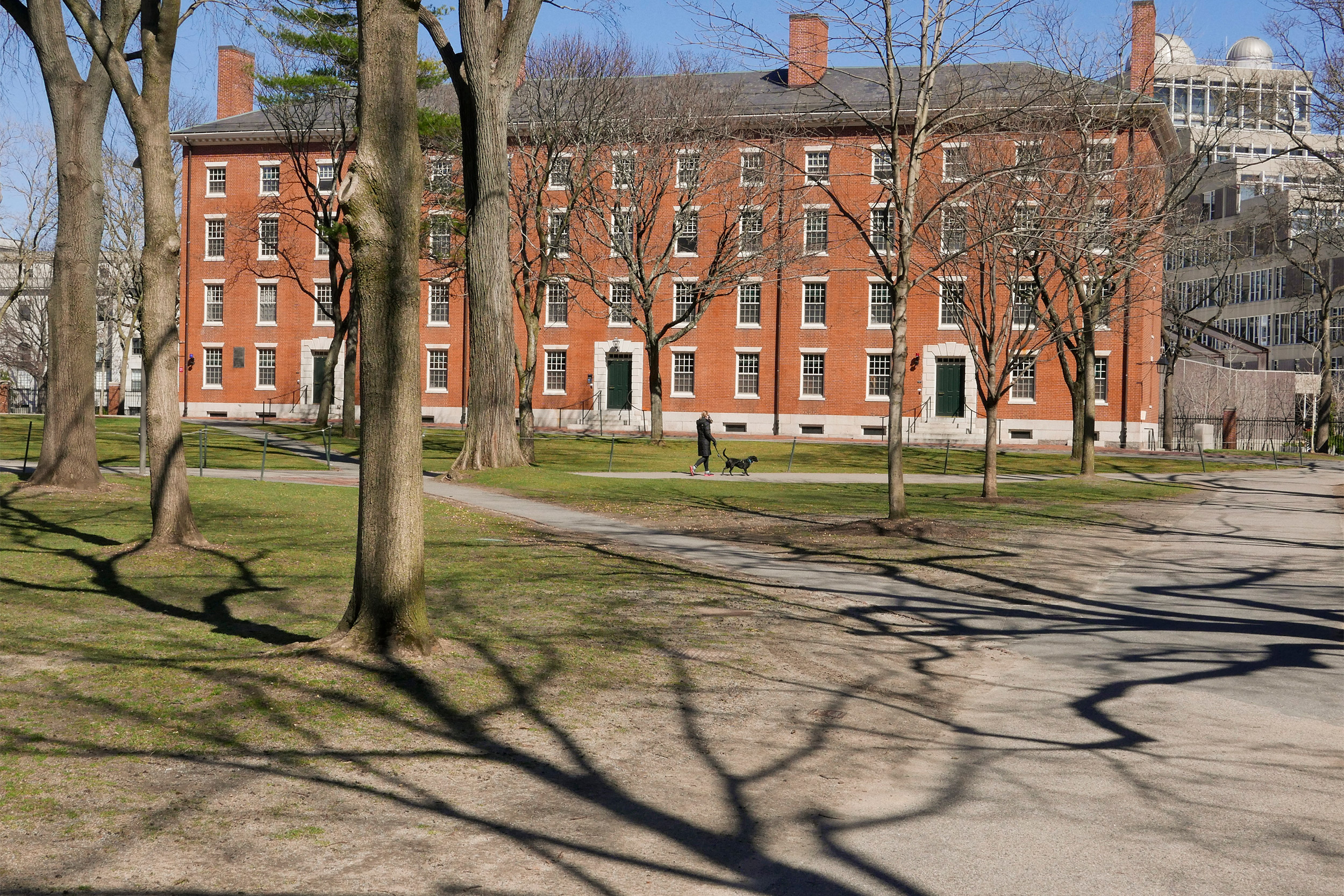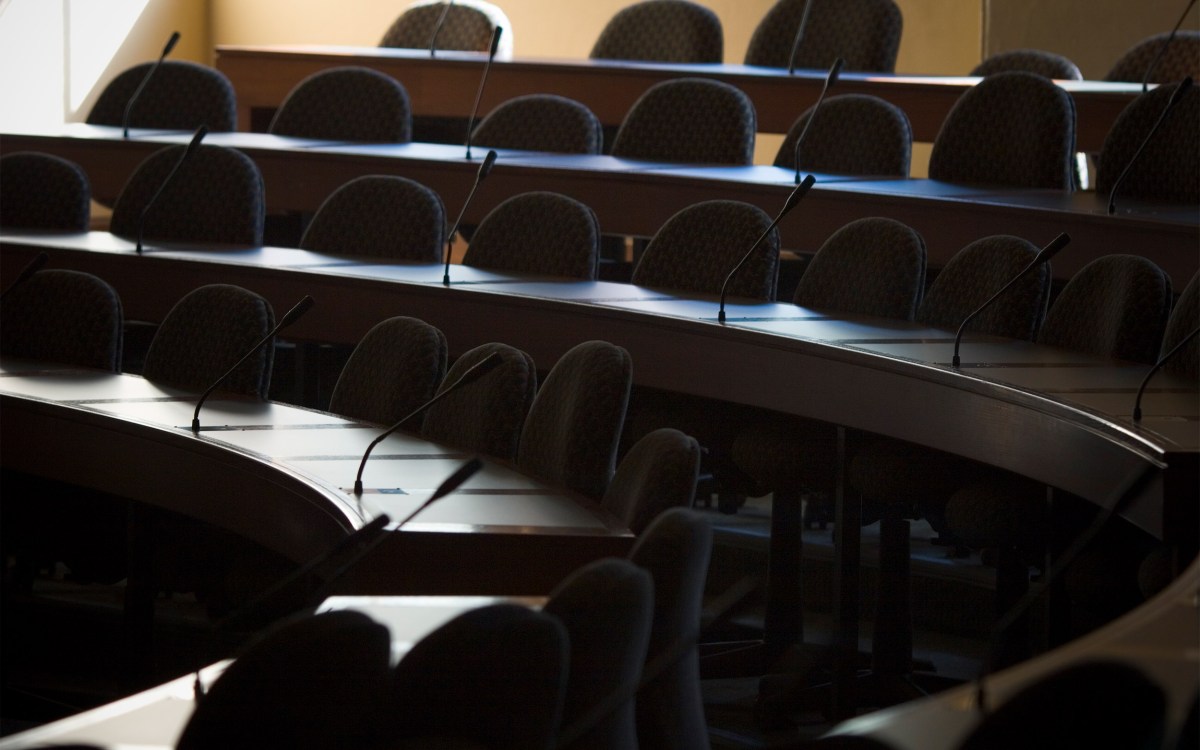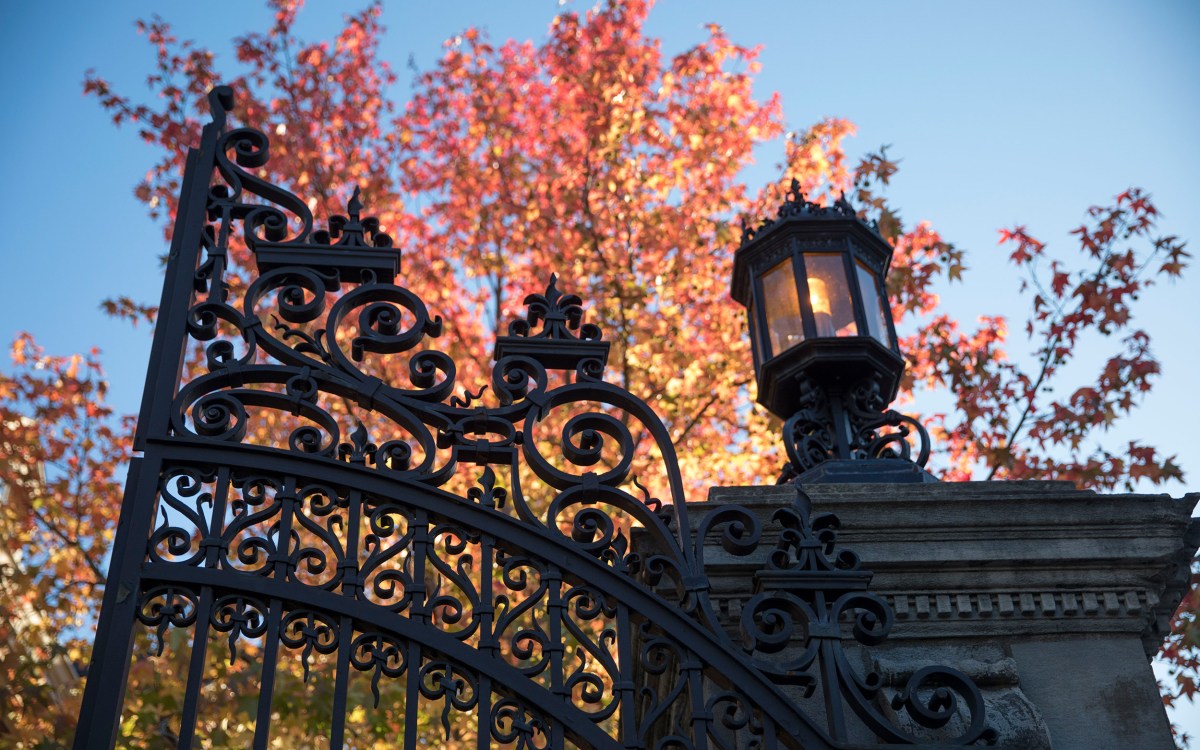
Harvard Yard following the departure of students in March.
Jon Chase/Harvard Staff Photographer
Teaching to remain online for 2020-21
FAS dean outlines three possible paths to return to residential life
More like this
Claudine Gay, Edgerley Family Dean of the Faculty of Arts and Sciences, laid out three potential scenarios for fall in an interim report to the community Monday that also confirmed online teaching will continue for the upcoming academic year.
Each of the pathways she described envisions how to bring students safely back to campus and at what pace. One possibility is a fall semester with a low-density campus (much as things are currently), while another is a medium-density plan with 30 to 40 percent of undergrads (2,000 to 2,500) on campus. A third path welcomes all undergraduates (or those who can and want to return and don’t have travel restrictions) to a high-density campus.
Regardless of which path forward is chosen, students will continue to engage in remote learning next year, with only rare exceptions. “The overwhelming reason for this decision is our commitment to protecting the academic enterprise and preserving academic continuity for all of our students,” wrote Gay. “Continued remote instruction ensures that academic continuity for all students is maintained, even if travel restrictions, visa issues, or health considerations keep them away from campus. We also recognize the difficulty of holding in-person classes while still conforming to guidance from public health authorities.”
Students can also expect a change to the academic calendar, with no breaks during the semesters to minimize travel, as well as significant new public health practices, including mask and social-distancing requirements and frequent, regular testing.
In her message to faculty and staff, Gay noted that many factors yet to be determined will affect the decision, including a strategy to provide large-scale testing for the University community as a whole, being developed by Harvard University Health Services, as well as acquiring and distributing masks and other protective equipment, also being led by the University. She cited last week’s return to lab research as one marker for how to move forward.
“We are learning valuable lessons from this process about how to reduce the risks of community transmission while maintaining a vibrant and active research community. Practices piloted during the resumption of research — like the universal masking protocol and baseline testing needs — are helping us determine what is possible for our residential experience in the fall,” she wrote.
A final decision will be made by July.








